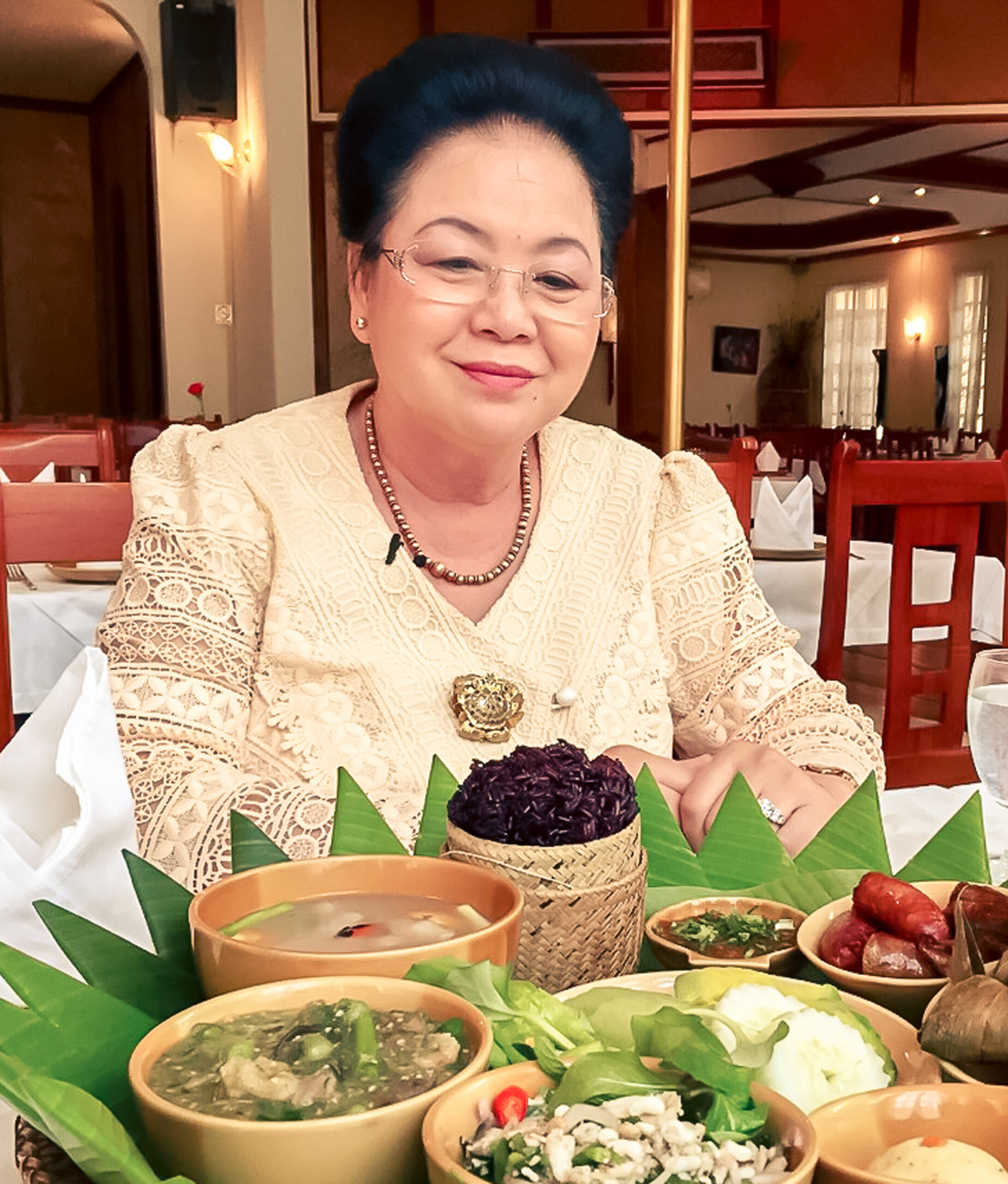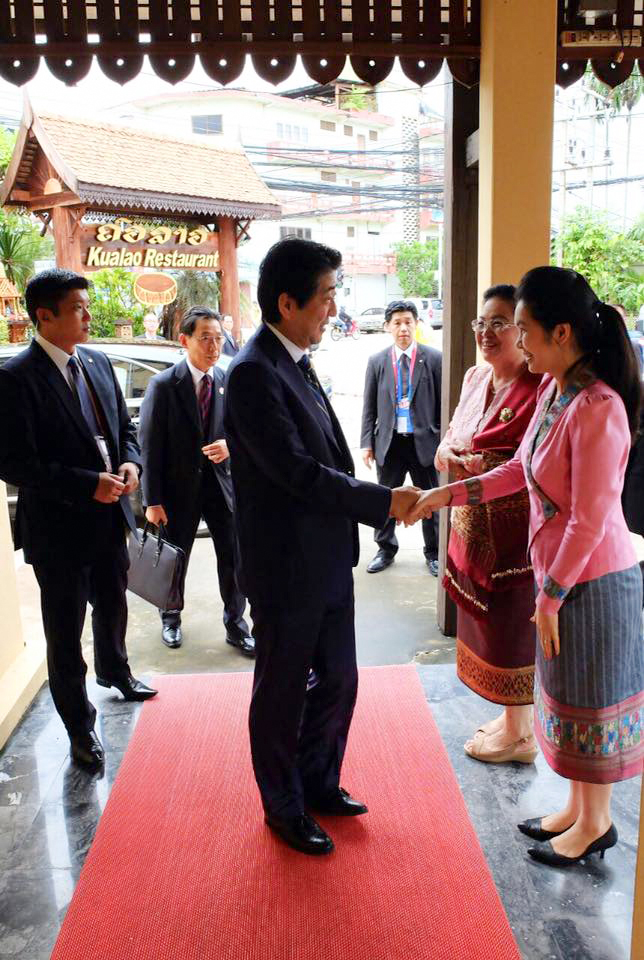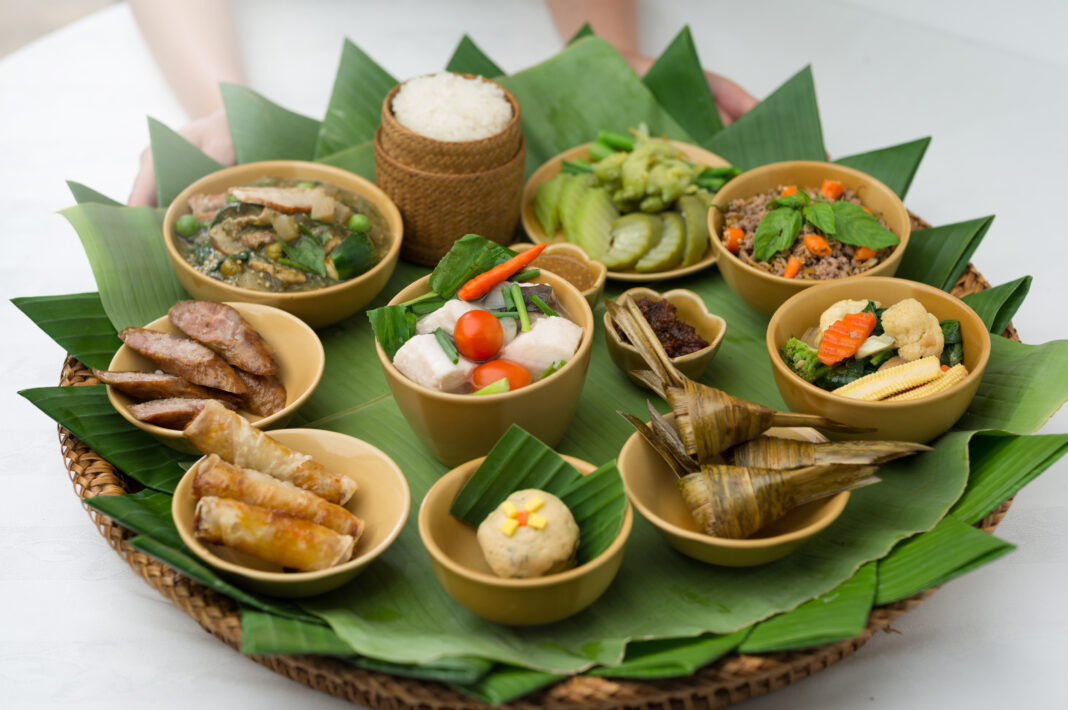Manola Daravong’s vision transformed Lao cuisine, proving to
the world that it deserved a seat at the world’s table.
Text BY Francis Savanhkham
PHOTOGRAPHS BY KUALAO RESTAURANT
Thirty years ago, Manola Daravong posed a question that would change the food culture in her country: Why wasn’t Lao food considered worthy of hosting guests? This curiosity sparked a belief in the power of Lao cuisine to transcend its humble beginnings. Fast forward 30 years, and Kualao Restaurant brings this vision to life, earning the patronage of international celebrities and foreign dignitaries including four Japanese Prime Ministers, most notably of whom was Shinzo Abe.
At the heart of Kualao’s story was the desire to showcase Lao food not just as meals, but as dignified experiences worthy of any table, anywhere in the world. “I wanted to prove that our local dishes were fit to be served to presidents, ambassadors, and movie stars,” Manola reflects. She imagined a place where the dishes she cherished growing up—whether it’s or-laam, a Luang Prabang stew once prepared only for the royal family because it took three days to prepare or joup phak, a simple yet pungent vegetable salad that reminded her of her modest roots in Xieng Khouang—could be presented with pride and shared with international guests.

Almost every morning for the past thirty years, Manola’s quest for the freshest ingredients leads her through the local wet markets of the capital city. It is the foraging of food through these small alleys that gives the Kualao menu its soul, sparking dishes that are the backbone of Laos’ culinary tradition. Manola firmly believes that Kualao is part and parcel of the food ecosystem in a broader sense, choosing to source directly from not just the fresh markets but also fishermen and gatherers from across the country’s many provinces. Ingredients like the famed Xieng Khouang mushrooms (matsutake), tapioca chips, and fish from Champasak not only bring authentic flavors to the table but also support the livelihoods of local foragers, fishermen, and the families that depend on them.
Kualao’s role in the industry extends beyond the table and the kitchen. The restaurant has also become known as a nurturing ground for local talent, providing job opportunities to women chefs and hostesses who are trained in-house, empowering them with not only hospitality-related skills but also a sense of community and more importantly, pride in their cultural heritage. It is then no surprise that almost half of the kitchen staff today have been with the restaurant since it first opened its doors to the public over a quarter of a century ago.
 But food isn’t the only thing that foreign guests look for when they visit a country. For three decades, Kualao has provided evening work to seasoned music professors and student dancers. By virtue of its footprint in the food industry, it was only natural for Kualao to welcome guests with traditional dance and music performances as they dined. Except for a brief pause during the Covid pandemic, this ensemble has delivered uninterrupted performances every night for the last thirty years.
But food isn’t the only thing that foreign guests look for when they visit a country. For three decades, Kualao has provided evening work to seasoned music professors and student dancers. By virtue of its footprint in the food industry, it was only natural for Kualao to welcome guests with traditional dance and music performances as they dined. Except for a brief pause during the Covid pandemic, this ensemble has delivered uninterrupted performances every night for the last thirty years.
“It’s wonderful to play our age-old Lao songs with the guests,” explains Bounchanh Bouphakham, the septuagenarian expert musician who has been playing music at the restaurant since 1994, “but every now and then we’ll use our traditional instruments—the khim, the khong, khene, kong, lanard—to play tunes from our guests’ countries. It’s priceless seeing the surprise in their faces, that’s pure joy.”
As the country gears up to welcome international guests during Visit Laos Year and Laos’ Chair of ASEAN, Kualao is keeping up with modern trends in the F&B industry. From the installation of a cloud-based POS system, high-speed Wi-Fi, and light building renovations, the restaurant is able to offer better service, while still staying true to its very authentic menu offerings.
Marking its 30th anniversary amidst these significant events, Kualao looks to the future where modernization can co-exist with its Lao character. As she looks back on thirty years of her business career, she has bright hopes for her daughter, Dalaphone, the next-generation caretaker of this iconic establishment, and says “As she steps into this role, just as I started with a question that sparked this journey, I trust that she will find her own questions to keep our story and legacy alive for years to come.”



 ລາວ
ລາວ
